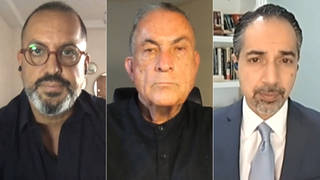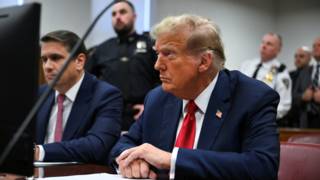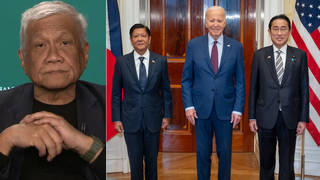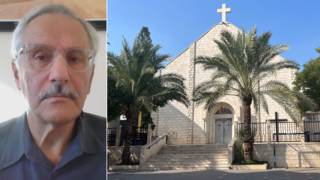
Related
Topics
By Amy Goodman & Denis Moynihan
Jorge Mario Bergoglio, the 78-year-old Argentinian known to the world as Pope Francis, made his first trip to the United States this week, bringing his uniquely progressive papal perspective. Almost a quarter of the U.S. population identifies as Catholic, but as a global religious leader, the pope’s influence extends far beyond the Catholic community. The pope has been frank in his criticism of much of the core of U.S. society: capitalism, consumerism, war and the failure to confront climate change. Pope Francis is widely adored, but his visit is also not without controversy, as he maintains age-old Catholic dogma regarding women in the priesthood, contraception and abortion. He also has provoked the ire of many indigenous people, as he reopens wounds inflicted during the violent Spanish colonization of California more than two centuries ago.
When he became pope, Francis surprised many, shunning the typical trappings of the highest position in the Catholic Church. He chose to reside in the Vatican’s guest quarters instead of the Papal Apartments in the ornate Apostolic Palace. He wears simple white vestments instead of the gilded robes of his predecessors. He rode the bus on his trips through Rome. It became apparent that this pope was walking the talk, as the first pope from the global south and the first non-European since a Syrian held the post in 741. He chose the name, Francis, after St. Francis of Assisi, the early 13th-century cleric who embraced a life of poverty and revered nature.
Pope Francis made clerical history last May with the release of a papal encyclical on the environment and climate change, which he called, in Latin, Laudato Si, meaning, “Praise Be to You.” He took those words from his namesake Saint Francis, and opened the encyclical with the words “Saint Francis of Assisi reminds us that our common home is like a sister with whom we share our life. … This sister now cries out to us because of the harm we have inflicted on her by our irresponsible use and abuse of the goods with which God has endowed her. We have come to see ourselves as her lords and masters, entitled to plunder her at will.”











Media Options